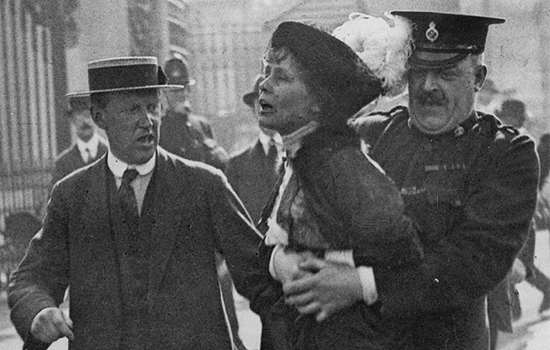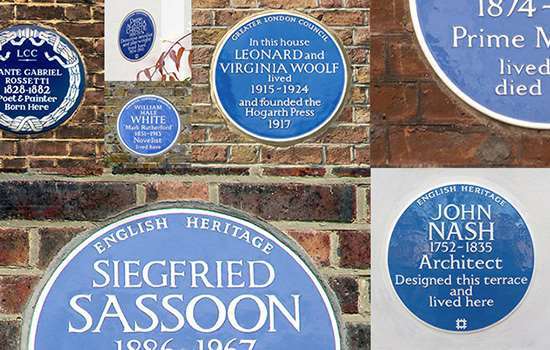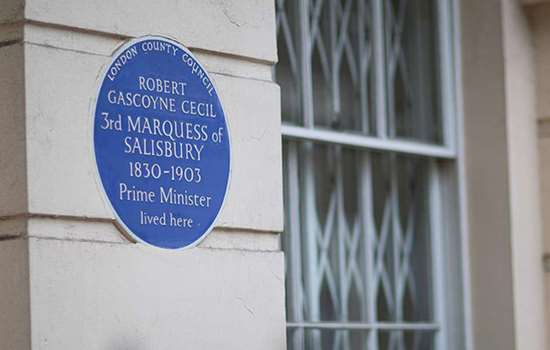COWARD, Charles (1905-1976)
Plaque erected in 2003 by English Heritage at 133 Chichester Road, Edmonton, London, N9 9DF, London Borough of Enfield
All images © English Heritage
Profession
Soldier
Category
Armed Forces, Philanthropy and Reform
Inscription
CHARLES COWARD 1905-1976 Rescuer of Prisoners from Auschwitz lived here 1945-1976
Material
Ceramic
Charles Joseph Coward was a British soldier captured in the Second World War who rescued Jewish prisoners from Auschwitz and was an important witness in the post-war Nuremberg trials. He is commemorated with a blue plaque at 133 Chichester Road in Edmonton where he lived from 1945 until his death (1976).
Prisoner of War
Charles Coward grew up in Edmonton, London. He enlisted in the British Army in 1937, but was wounded and captured at the fall of Calais in 1940 while serving as a battery sergeant. As a prisoner of war he became notorious for his repeated escape attempts including escaping twice before even arriving at a POW camp. Between escapes he managed to continuously thwart the German war effort through acts of sabotage while serving on work details. He passed through several POW camps, but was unable to escape German-controlled territory and in 1943 he was posted to the Auschwitz complex of labour and death camps in Upper Silesia.
The Count of Auschwitz
At Auschwitz, Coward was based at the E715 labour camp, next to the IG Farben plant – a German chemical and pharmaceutical company which, in the 1940s, relied on slave labour from concentration camps including Auschwitz.
Thanks to his command of the German language, Coward was appointed Red Cross Trustee responsible for British prisoners of war. This trusted position meant he was able to operate without the usual restrictions imposed on other prisoners and move fairly freely throughout the camp. During his time there he witnessed the atrocities committed by the Nazis towards the Jewish prisoners, and vowed to help as many prisoners as he could.
Coward repeatedly risked his own life in order to smuggle Jewish prisoners out of Auschwitz by swapping their identities with those of non-Jewish inmates who had died in the camp. He also sent regular coded letters to the British government which contained details such as dates and numbers of Jews he had witnessed arriving on trains for the concentration camps. On one occasion, Coward even exchanged places with an inmate from the nearby concentration camp, and had a night-long experience of the horrific conditions there.
We cannot know for certain how many Jews Coward saved, though it is believed to be in the hundreds. Amongst those was Yitzchak Persky, the father of Israeli politician Shimon Peres. Persky's personal testimony was given to a researcher of the Yad Vashem archive in 1965 and was made public in 2013.
Coward's heroic efforts would later earn him the nickname ‘The Count of Auschwitz’.
Post-War Trials
Liberated in 1945, Coward moved to 133 Chichester Road, an inter-war end-of-terrace house in Edmonton. He shared it with his wife, Florence, and their five children until his death in 1976. While living at Chichester Road, Coward was a crucial witness in the Nuremberg war crimes trials (1947). His testimony at the trials was sensational and brought his personal bravery to public attention. Coward also gave evidence at a trial in Germany in 1953, enabling thousands of survivors from Auschwitz to file lawsuits for compensation against their former oppressors.
In 1963, Coward was named one of the Righteous Among the Nations, by the state of Israel, awarded to non-Jews who risked their lives during the Holocaust to save Jews from extermination. He is also one of only two Englishmen to have been awarded the Israeli Peace Medal. Always modest, Coward lived the remainder of his life in Edmonton and worked as a timber measurer in a factory. He was a regular at the local Rose and Crown pub on nearby Church Street and frequently spoke at local meetings about his wartime experiences.


